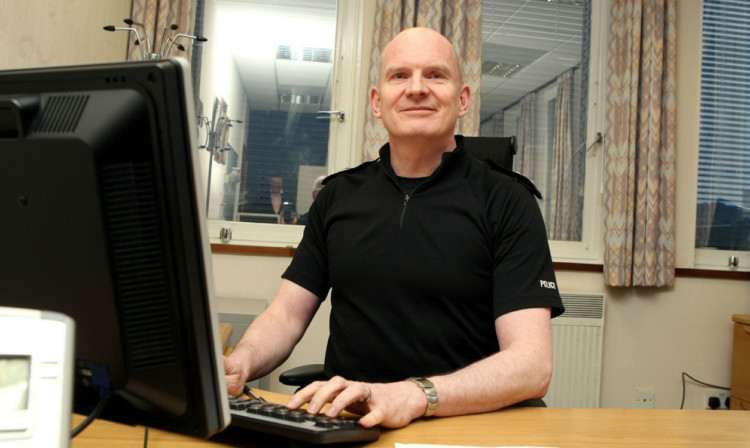The head of policing in Tayside has welcomed a fall in most crimes in the region in 2013 and said a rise in rape and child neglect was the result of growing confidence in victims to report crimes and better policing.
As Police Scotland’s Tayside Division draws up its plan for policing priorities for the next three years, Chief Superintendent Hamish Macpherson said the focus will remain on violence, serious organised crime, sexual assault, housebreaking, anti-social behaviour and road policing.
A rise in reports of rape and sexual assault is believed to be in part of a national trend, with victims gaining confidence to come forward in the wake of the Jimmy Savile investigations.
Mr Macpherson said: “We will probably see a rise in this for another couple of years but this is a positive rise as only a small percentage of these crimes are reported.
“The only way to really drive down these crimes is to get them reported and the perpetrators in jail.”
There were also 54 more cases of child neglect, which police are dealing with more instead of leaving the problem to social workers alone.
Mr Macpherson said: “I don’t think we will ever be in a situation where people don’t neglect children, and don’t take drugs but we are getting better at spotting it.”
There were four murders in Tayside, 57% fewer than the previous year, according to the end-of-year figures, and robbery is also down 50%.
There were 148 fewer victims of housebreaking and a 10% fall in vandalism but Mr Macpherson said people’s fear of crime remains constant.
He said: “Violence will remain a priority, as it always has. Dundee is a city with a very low level of violent crime but we still have far too much violent crime related to alcohol.”
Mr Macpherson said it was “no surprise” that domestic abuse is still a priority for the whole of Police Scotland as it is ‘a blight’ on the country.
He said: “There are far too many people abused in Scotland. I don’t think, historically, police have dealt with abuse properly but now people have much more confidence in coming forward.”
Anti-social behaviour will remain a policing focus, including anti-social use of vehicles, and road safety is a particular concern of Mr Macpherson.
He said that despite high-profile campaigns in summer and over the festive period there has been no real change in the figures, with 360 people caught since April.
While he welcomed a reduction in the number of people killed or seriously injured on the roads in the past year, he was disappointed that speeding offences rose by 170%, with road traffic police catching 6,000 speeders last year.
He said: “I make no apologies for continuing to focus on people driving vehicles inappropriately. I owe that to everyone else on the roads.
“Too often they don’t kill themselves but kill the people coming in the other direction who are doing the speed limit.”
In adddition, 1,400 people were caught driving while using a mobile phone; the same number as were not wearing seatbelt.
Mr Macpherson said the detection rate for people caught committing serious violent crime in the Tayside area is 95% a message to criminals that they will not get away with it.
The local policing plan for the next three years will be subject to public consultation and the local authority will have to approve the proposals.
